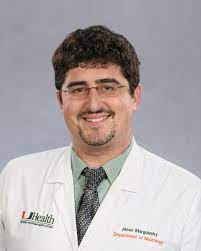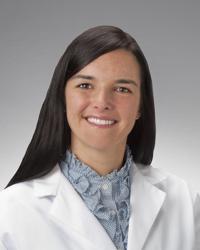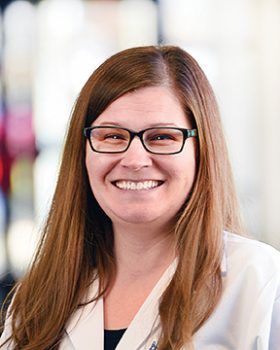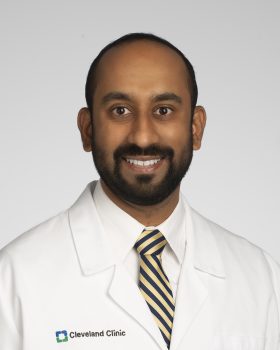This year was another record-breaking Match for DOs, with more than 6,800 DO seniors—or nearly 92 percent—matching into PGY-1 training positions. We spoke to a few residency program directors, both DO and MD, about the holistic review process they use during recruitment, and how it contributes to a more diverse and inclusive environment.
What do you do to ensure a fair and holistic review process?
 In our review process, COMLEX-USA and USMLE scores are weighted equally, and score ranges are divided across a 0-, 1-, or 2-point scale. But test scores are just one of many factors to consider about an applicant. We also look for strong communication and interpersonal skills, and diversity in interests. Our goal is to have residents with a range of clinical and research interests in a given class.
In our review process, COMLEX-USA and USMLE scores are weighted equally, and score ranges are divided across a 0-, 1-, or 2-point scale. But test scores are just one of many factors to consider about an applicant. We also look for strong communication and interpersonal skills, and diversity in interests. Our goal is to have residents with a range of clinical and research interests in a given class.
Jason Margolesky, MD
Residency Program Director, Neurology
University of Miami Health System
 UPMC Children’s Hospital of Pittsburgh is fortunate to have 6 program directors; we review all applications as a group prior to inviting students to interview, then review holistically after the interviews have been completed. This approach allows the program directors to know each applicant fully along with their strength profile.
UPMC Children’s Hospital of Pittsburgh is fortunate to have 6 program directors; we review all applications as a group prior to inviting students to interview, then review holistically after the interviews have been completed. This approach allows the program directors to know each applicant fully along with their strength profile.
Katherine Watson, DO
Residency Co-program Director, Pediatrics
UPMC Children’s Hospital of Pittsburgh
 We’ve started implementing blocking items from the application such as photos, pronouns, religion, date of birth, and gender/gender identity in order to attempt to remove some potential biases. All faculty participate in reviewing applications through random assignment of applicants. Looking at an electronic record doesn’t give a good feel for the person. It’s a drastic judgment and for that, we have standardized criteria to determine if an applicant should be offered an interview.
We’ve started implementing blocking items from the application such as photos, pronouns, religion, date of birth, and gender/gender identity in order to attempt to remove some potential biases. All faculty participate in reviewing applications through random assignment of applicants. Looking at an electronic record doesn’t give a good feel for the person. It’s a drastic judgment and for that, we have standardized criteria to determine if an applicant should be offered an interview.
Rachel Nixon, DO
Residency Program Director, Family Medicine
Ascension Macomb Oakland Hospital
 Our program developed a standardized rubric where most points are assigned based on what the applicants have documented on their ERAS application. Those candidates selected to interview are then scored based on their interview. We evaluate leadership experience, performance in the core clerkships, research experience, and objective measures of academic success. We also account for intangible qualities such as additional advanced degrees, volunteerism, strong letters of recommendation, and participation in team sports. These additional qualities show maturity, the ability to work in a team, and grit. Ultimately, our method helps us match those candidates whose goals align with the program’s mission and training environment.
Our program developed a standardized rubric where most points are assigned based on what the applicants have documented on their ERAS application. Those candidates selected to interview are then scored based on their interview. We evaluate leadership experience, performance in the core clerkships, research experience, and objective measures of academic success. We also account for intangible qualities such as additional advanced degrees, volunteerism, strong letters of recommendation, and participation in team sports. These additional qualities show maturity, the ability to work in a team, and grit. Ultimately, our method helps us match those candidates whose goals align with the program’s mission and training environment.
Abhiram Kondajji, DO, MS
Core Faculty, General Surgery Residency
Cleveland Clinic South Point Hospital
What do you specifically look for when selecting candidates?
Margolesky:
We think a class is stronger when made of people with diverse backgrounds, interests, and experiences. Our current DO resident has been wonderful and a leader in her class. We had five DOs on our rank list, two high on the list, and a DO will join our PGY3 class in July.
Watson:
We know most outstanding trainees are not driven by one aspect, but are an entire totality with medical education, community engagement, prior life experiences, and research opportunities. UPMC fully acknowledges that standardized test scores are indicators for future success but they are not really part of the review for a raw score. We acknowledge it and move on. We believe in looking for pediatric trainees with prior community engagement, outstanding academic records, and research in areas that can have meaningful outcomes.
Diversity and training experiences bring a richness that is really important in training programs. We are dedicated to training future Pediatricians that reflect the diversity in the patients that we serve. We all are better physicians when we surround ourselves with diverse perspectives.
Nixon:
We look for engagement within the community and leadership positions that indicate possible future leadership at our institution. We don’t have a strict board score requirement. We do require that an applicant has passed boards before interviewing and/or ranking. We review volunteer and research experience/exposure to see what they have done and what their interests may be. We have pretty basic criteria, and if it’s met, we will offer interviews to get to know the individual better.
Kondajji:
We seek candidates who understand the osteopathically focused component of our training environment. We want candidates who have a growth mindset and are team players that will fit into our family-centric training environment.
What advice do you have for DO students and graduates who will be embarking on their residency applications and interviews in 2023?
Margolesky: Don’t hesitate to apply! We will read your application and consider you as we do all applicants.
Watson: Try to get a clinical experience rotation in the hospitals they are most interested in.
Nixon: Make sure you can show community involvement, which indicates life balance. Provide letters of recommendation from those who actually know you, which is better than standard letters. If there is an extension of training or a break, comment on why so that it is addressed.
Kondajji:
- Understand your personal goals in completing your training in a particular specialty or hospital. Will completing your training in a specific environment provide you more success in obtaining a fellowship or better prepare you for going into practice immediately?
- Talk with your mentors and faculty to get a realistic expectation of where they see you thriving
- Take the opportunity to attend a conference for your specialty of choice and network with residents and faculty from the programs you are considering.
- Be prepared to address any weak sections of your application during the interview, or address how you spent your time in another area of interest, such as leadership.
- Having fewer research topics listed and being well-versed in those is better than having many with a superficial understanding of the research.
- When doing a Sub-I, you should embody the role of a resident to demonstrate that you are prepared for the challenges of residency. I.e.) know the patient’s history, new labs, and imaging details, and be ready to assist with any procedures.
- Lastly, be yourself and own your osteopathic training and heritage. You have worked diligently to arrive at this point, and there is a program that will fit you and help you along your journey to achieve your aspirations.
For its part, the NBOME continues to advocate for a holistic residency review process and for DO students and their COMLEX-USA credential by reaching out to program directors and GME personnel to increase awareness and acceptance of COMLEX-USA scores as part of that process. For more, visit our Advocacy and Education page.

